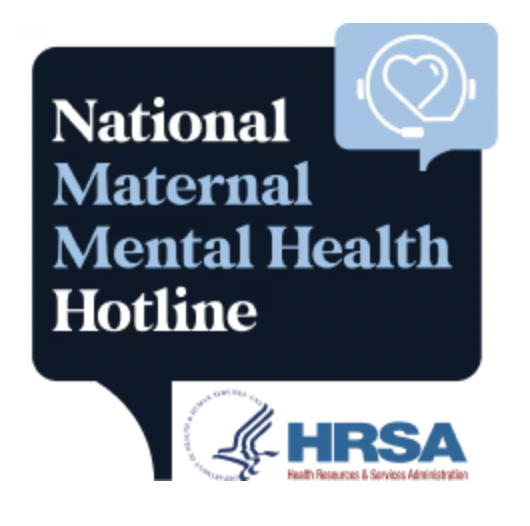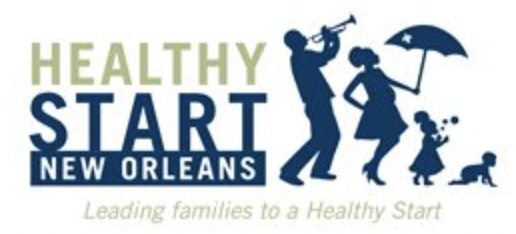From early childhood, we experience the natural highs and lows of life. From joy and sadness to excitement and anger, we’ve all experienced life's vast range of emotions. However, as we mature and face new and uncertain challenges, many of us begin to experience the heavy anxieties that accompany these times. These anxieties can be exacerbated by social factors like cultural beliefs, poverty, and race, leaving some individuals more vulnerable to mental health struggles. Mental health care services exist to alleviate these challenges and are essential for self-care and physical health. However, many vulnerable populations, such as minority groups, may not have access to these services, further intensifying their struggles and negative emotions. In honor of Minority Mental Health Awareness Month of July, DePaul Community Health Centers (DCHC) is highlighting the mental health challenges of minority groups to spread awareness and provide resources for those most in need.
Minority Mental Health Awareness Month and it’s Importance
Minority Mental Health Awareness Month (MMHAM) was nationally declared and sponsored by Representative Albert Wynn in 2008, inspired by Bebe Moore Campbell’s advocacy work to improve mental health outcomes (NAMI, n.d.). This month-long recognition is dedicated to shining a light on the mental health challenges of marginalized groups and the disparities faced in accessing care. These disparities are caused by social determinants of health (SDOH) that create inequitable circumstances in achieving optimal mental health.
According to the CDC, minority populations experience some of the worst effects of poor mental health due to decreased access to care services and resources. A study conducted in 2025 by the American Psychiatric Association (APA) found that among adults with any mental illness, 48% of White individuals received mental health services, compared to 31% of Black and Hispanic individuals and 22% of Asians. As a result, many racial-ethnic minorities face a disproportionately high burden of disability due to mental illness, higher rates of persistent depression, and other mental health disparities (APA 2015). This reality underscores the higher need for accessible mental health services for minority populations and increased health equity advocacy through initiatives like MMHAM. This need is further intensified by recent research on rising rates of mental illness during and after the COVID-19 pandemic and the decreased rates of care access in minority populations. According to the 2021 National Survey of Drug Use and Health (NSDUH), US populations face similar rates of mental illness across the board. However, only 36% of Hispanic and Latino Americans received mental health services compared to 52% of non-Hispanic Whites, and just 39% of Blacks and African Americans received mental health services compared to 52% of non-Hispanic Whites. This lack of accessible care is a significant stressor for many minority populations; however, the effects of this issue have even further ramifications for parents and their children.
Minority Mental Health and Parenthood
Parenthood is an experience that is rewarding yet stressful for anyone. However, the aforementioned disparities put parents in minority groups under higher stress, particularly considering the lack of cultural awareness in mental healthcare necessary to properly help people in minority groups. In addition to inaccessible care and other social determinants, these factors create heightened risks for various maternal mental health issues, including postpartum depression (PPD). Among all minority groups, African American women are more prone to developing postpartum depression and other maternal health complications (Lockett, 2023). They are also disproportionately affected by PPD due to inaccessible mental health care (Lockett, 2023). Furthermore, research has also shown that Black and Hispanic women are less likely to have access to paid maternity leave, which would reduce the stress of navigating parenthood (BLS, 2019). According to a recent study, less than 50% of Black and Hispanic pregnant women have access to paid maternity leave.
These mental health concerns impact not only mothers but also fathers and their children. In addition to PPD affecting mothers, fathers can also develop paternal postpartum depression (paternal PPD). Both maternal and paternal PPD can have long-lasting adverse effects on children’s development. For instance, research shows that PPD may lead to delayed psychological development in children (Garfield et al., 2021), as well as an insecure relationship between the parents and child.
Given these unfortunate statistics, it is clear that the need for health equity and better mental health services for minority groups is imperative. To honor MMHAM, DCHC is launching new outreach initiatives to improve minority maternal mental health concerns through the DePaul Infant Equity Education Program (DIEEP). The DIEEP focuses on maternal and health equities and education, primarily addressing food deserts regarding nutrition and maternal mental health. These initiatives aim to reduce infant food insecurity through breastfeeding, increase maternal and paternal mental health awareness, promote health equity, and improve maternal health outcomes for the most vulnerable. To learn more about DCHC behavioral health services or the DIEEP, please call a DCHC Catalyst Infant Equity Program staff member at (504) 482-2080.
Infant care... Just for you.











